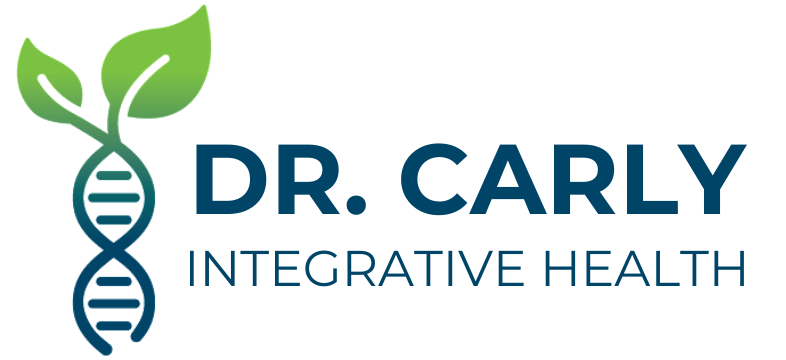Functional Thyroid Hormone Resistance
Thyroid hormone resistance is when your cells don’t respond to thyroid hormone. In conventional medicine, this condition occurs when there is a genetic mutation causing the thyroid receptor to not form correctly. This is thought to be relatively rare.
When I talk about thyroid hormone resistance, I am talking about physiological imbalances that are much more nuanced than a malformed receptor. But the bottomline with functional thyroid hormone resistance is that the thyroid hormone is not getting where it needs to be and that results in symptoms of hypothyroidism (fatigue, hair loss, constipation, depressed mood, dry skin, etc.) even with “normal” thyroid labs.
Signs of Functional Thyroid Hormone Resistance
symptoms of hypothyroidism with normal TSH
no improvements in hypothyroid symptoms on T4 only medication
elevated reverse T3
Conditions Associated with Thyroid Hormone Resistance
insulin resistance
diabetes
depression
bipolar disorder
hyperlipidemia
chronic fatigue syndrome
fibromyalgia
neurodegenerative diseases
migraines
stress
anxiety
chronic dieting
Mechanisms of Thyroid Hormone Resistance
Impaired Intracellular Transport
Basically this means that thyroid hormone cannot get into the cell. Transporting thyroid hormones from the blood into a cell requires energy. So if your cells don’t have enough ATP (cellular unit of “energy”), it might not bring much thyroid hormones into the cell. The most common underlying causes of this scenario for women are nutrient deficiencies secondary to calorie malnutrition (not eating enough!) and/or inflammation in the gut.
Most women in my practice have restricted their calories through some form of dieting off and on for years, which has damaged their mitochondria and their metabolism. So they are now stuck in a state of semi-starvation (aka calorie restriction) just to not gain weight. But that results in mitochondrial damage and nutrient deficiencies. Most of these women also have poor digestion and imbalances in their gut bacteria that results in nutrients not be extracted and absorbed from food.
Other causes of low cellular energy include toxicity (heavy metals or environmental toxins), chronic infections, and chronic stress.
T4 therapy (like Synthroid or Levothyroxine) often doesn’t improve symptoms because of this intracellular transport issue. The cell needs more energy to import T4 compared to T3. So it is more difficult to get T4 into cells and then once it is in the cell, it has to be converted to T3. So your body needs more energy to utilize T4 medications than it does with T3 medications.
Elevated Reverse T3
Reverse T3 is a thyroid hormone that is made from T4 and is inactive. There is some confusion about how and why reverse T3 is made and what it does. One idea is that insulin resistance, leptin resistance, and stress can cause T4 to convert to reverse T3, resulting in less T3. Another theory is that T4 is converted to reverse T3 when T4 isn’t able to be transported into the cell. In this case, reverse T3 is a marker of thyroid hormone transport. Another theory is that reverse T3 can block T3 from entering causes, causing thyroid hormone hormone resistance. So either elevated reverse T3 is a cause or a marker of thyroid hormone resistance. All I know is that my patients have less symptoms when their ratio of reverse T3 to T3 is healthy.
Approach to Thyroid Hormone Resistance
First, you need a decent thyroid work up involving TSH, Free T3, Free T3, Reverse T3 and antibodies. Putting your thyroid biochemistry into context of your symptoms will determine the likelihood of thyroid hormone resistance since there is no definitive test.
The next step is to figure out why you have thyroid resistance. Do you need to stop restricting calories? Do you need to heal your gut? Do you need to balance your blood sugar? Or do you need to address toxins and infections?
Identifying and addressing the root cause is the quickest and most cost effective way to address any issue with the thyroid. Because once you remove the obstacle to cure, you don’t need to do anything and your body will heal itself.
In the meantime, the right thyroid medication (usually a T3 containing medication) and certain nutrients can help manage symptoms. But actually fixing thyroid hormone resistance isn’t as simple as taking the right supplement. I don’t recommend taking a general “thyroid support” supplement. They contain ingredients that are not safe and effective for everyone or even at a therapeutic dosage. Learn which thyroid supplements to take and which to avoid in my free guide to thyroid supplements.


